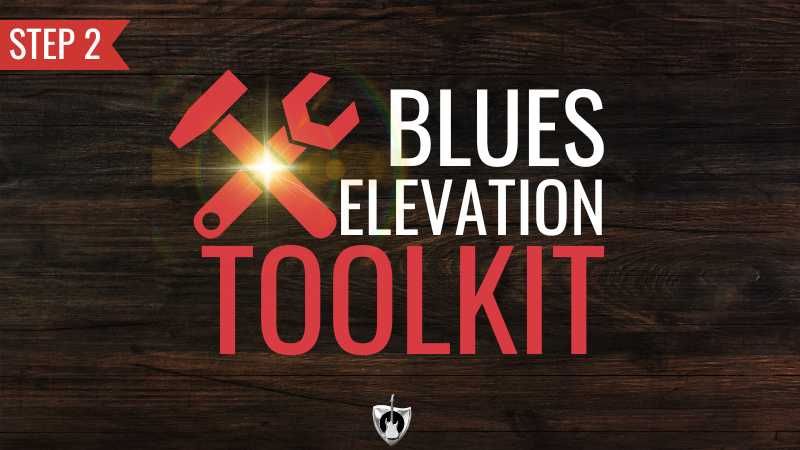How to Play Over Minor Chords and Sound AWESOME! - 037

Today, I’m playing solos over minor chords! I show you how and what to play to make you sound awesome!
So let’s work our way, from easiest to the most challenging scales that you can use to sound awesome playing over minor chords. They are:
- Minor Pentatonic
- Natural minor
- Dorian
- Melodic minor
- Harmonic minor
Minor Pentatonic
The minor pentatonic scale is usually the first scale that most guitar players learn when they start getting into lead guitar.
Why?
…because it’s easy to remember and easy to play and it sounds great over a lot of different chord progressions and styles of music
Pentatonic scales are the basis for so many melodies in folk songs from around the world
It is in music as different as irish folk to chinese folk to blues. It’s the peoples scale and it sounds good to us!
i always thought it was very interesting how folk music of different cultures that had little to do with each other used pentatonic scales but sounded completely different
What is it?
Well the pentatonic scale is just what it says. The penta prefix meaning five makes it a five note scale.
There are many different pentatonic scales but the one we are going to talk about today is the minor pentatonic scale.
The notes it uses are the: 1st, b3rd, 4th, 5th and b7
Those are all of the strong notes of the minor sound.
In fact, if you look at it , it’s basically the arpeggio notes of the minor 7th chord with the added 4th. (It sounds a lot like that minor 11th chord I like so much).
Because the notes are so strong, so inside, it’s hard to make this scale sound bad. Its a very consonant sound over a minor chord.
how do I play it?
it’s the classic box pattern that you see all of the time.
To really show you the difference and to bring home the small changes between all of these scales, I’m going to keep all of these in A minor and based on pattern 1 at the fifth fret.
This way you will really be able to visualize how to make the small changes between these scales on the fly, whenever you need these different sounds.

What chords and progressions sound good with this scale?
- Minor triads
- Minor chord progressions
- and,Blues progression with 7th chords
Natural minor
It’s the minor scale that’s the basis for all that we are doing here today, and if you know a major scale then you already have the fingerings for the natural minor scale.
What is it?
it’s a 7 note scale (full scale) 1, 2, b3, 4, 5, b6, b7, 1
How do i play it?
use pattern 1 of the C major scale and start back on the 5th fret of the low e string for our new tonic note.
What chords and progressions sound good with this scale?
- minor chords
- minor chord progressions
Dorian
The dorian mode comes from the major scale. It is a mode that starts from the 2nd note of the scale.
In the case of C major you would start on the 2nd note of the scale, which is D – and make that the new tonic note.
Why?
You would use Dorian for a lot of different reasons.
- If you were playing jazz where the chord structure is 2 5 1, the dorian mode sounds great over that first 2 chord.
- You could use the Dorian mode over static minor chords for an interesting alternative to Natural minor.
- Dickey Betts from the Allman brothers used Dorian all of the time in his solos taking advantage of its differences to add a more complex sound to his southern rock leads
What is it?
The notes in the Dorian mode are:
1, 2, b3, 4, 5, 6, b7, 1
It is almost exactly like the Natural minor except for the 6th.
The Dorian mode uses the major 6 instead.
The structural notes 1,b3,5,b7 have not been changed. It still functions the same but the change to the 6th degree gives you a very cool blended sound.
How do i play it?
There are two ways of thinking about approaching the Dorian mode:
1. as an adjustment to the 6th of the natural minor scale.
It’s so easy to just find the 6th note of your Natural minor scale and raise it up one half step. You really don’t have to think so much , just change one note.
But, what you find when you are really familiar with your scale patterns, is that when you raise that one note, it starts to look very familiar. The new pattern looks just like one of the other patterns in the major scale:
Pattern 2 in G major.
2. That leads us to the other way to play Dorian as a mode of a parent scale As I said before it is a mode that is based off of the 2nd note of the major scale.
So you just need to do a little backwards thinking. Ask yourself: What major scale would I need to play so that the 2nd note is my new tonic?
What chords and progressions sound good with this scale?
- Minor triads
- Minor 7th chords
- Modal jazz tunes that tend to stay on one chord for a longer time
- 2 5 1 progressions where you play dorian over the 2 chord
- Minor based fusion or rock songs
Melodic minor
So moving on from modes but staying in the same idea of changing a few notes to get a different sound we come to the melodic minor scale
The melodic minor scale is awesome its a completely blended sound that has a lot of very cool uses. It’s a complete combination of the minor scale and major scale.
Why?
You could use melodic minor over minor chords to get a different sound than the Natural minor.
You could also use it over min maj7 chords. It would match the maj7 note perfectly.
What is it?
1, 2, b3, 4, 5, 6 ,7
How do i play it?
There are two ways to think about it.
- You can think of it as a major scale with a b3.
- Or, you can think of it as a minor scale with a raised 6 and 7.
What chords and progressions sound good with this scale?
Minor triad
Minor maj 7
Harmonic minor
Last but not least, the harmonic minor scale has a very cool classical sound that works so well over heavy metal!
It is awesome for fast runs when you are playing in 3 note per string patterns.
Why?
The big space between the b6 and the # 7 creates a very distinctive sound that is very interesting and pleasing to listen to.
What is it?
1, 2, b3, 4, 5, b6, 7, 1
How do i play it?
Take your natural minor scale and raise the 7th. Super easy!
What chords and progressions sound good with this scale?
- Minor triad
- Minor major 7th
- In jazz on a minor progression where you have the 5 chord as a dominant
- Power chord metal where you are in a minor tonality
Conclusion
So there it is the scales and modes you can play over minor chords to sound awesome!
I went over my 5 favorite choices to play over minor chords which were”
- Minor pentatonic
- Natural minor
- Dorian
- Melodic minor
- Harmonic minor
I showed what they are, and the reasons why you would use them in different contexts.
Question
Have you struggled playing over minor chords and minor chord progressions? Or, if you are good with minor, what are your favorite scales and modes to play in minor situations? Let me know in the show notes below:
GET FREE WEEKLY GUITAR LESSONS, PODCASTS, AND MOTIVATION DELIVERED TO YOUR INBOX.
Your information is kept safe. It's never shared with third parties.








